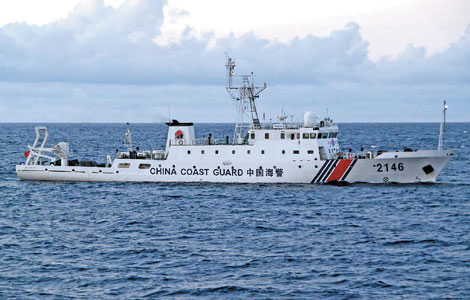

Despite Japan's surrender to the allies 68 years ago, the ghost of militarism still haunts Asia and threatens to challenge the post-war world order.
 Activists urged Japanese government to formally apologize over "comfort women" during mass protests on Wednesday in Taipei.
Activists urged Japanese government to formally apologize over "comfort women" during mass protests on Wednesday in Taipei.
Japanese Prime Minister Shinzo Abe has decided not to visit the war-linked controversial Yasukuni Shrine on August 15, the 68th anniversary of Japan's surrender in the World War II.
Japan is willing to improve its ties with China and the relationship with China remains one of Japan's most important bilateral ties.
The China-Japan Treaty of Peace and Friendship of 1978 should be commemorated and followed well, Chinese Foreign Ministry spokesman Hong Lei said.
Japan is to lift its self-imposed ban on the right to exercise collective self-defense with its military allies.
 Beijing rejected a protest from Tokyo on Thursday over Chinese ships patrolling near the Diaoyu Islands, as four Chinese vessels made their longest stay in the area.
Beijing rejected a protest from Tokyo on Thursday over Chinese ships patrolling near the Diaoyu Islands, as four Chinese vessels made their longest stay in the area.  Islands dispute hammers attitudes
Islands dispute hammers attitudes  Special
Special
The strained China-Japan relationship is the most telling witness to how Japan's diplomatic policies have been held hostage by its domestic politics.
Ordinary people in China and Japan are pessimistic about future economic cooperation between the two countries as bilateral relations worsen, a recent survey has found.
New York Congressman Steve Israel said the Japanese government should fully acknowledge, apologize for and increase awareness of its history of the "comfort women" atrocity.
With the Aug 15 anniversary of Japan's defeat in World War II looming, concerns are mounting once again over whether Japanese Prime Minister Shinzo Abe and his Cabinet members will visit the controversial Yasukuni Shrine.
California Congressmen urge US Secretary of State John Kerry to encourage Japan's government to address the issue of women who were forced into sexual servitude during World War II.